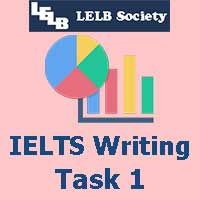The IELTS Writing Task 1 can often seem daunting, but with a few strategic tips, you can navigate this task with confidence and achieve a high score. This part of the exam requires you to describe, summarize, or explain information presented in a graph, table, chart, or diagram. Here are some practical tips to help you excel: Understand the Task: Begin by carefully analyzing the visual information presented. Identify the key trends, significant changes, and noteworthy data points. Take a few moments to plan your response before you start writing. Structure Your Answer: A well-structured response typically includes an introduction, ...
Home » IELTS Essay Writing Practice » IELTS Writing Task 1 Tips and Lessons

IELTS Writing Task 1 Tips and Lessons
Updated: by Dr. Mohammad Hossein Hariri Asl
Time to Read: 2 minutes | 369 Views | No Comments on IELTS Writing Task 1 Tips and Lessons
Share This Post
About the Author
Dr. Mohammad Hossein Hariri Asl is an English and Persian instructor, educator, researcher, inventor, published author, blogger, SEO expert, website developer, entrepreneur, and the creator of LELB Society. He's got a PhD in TEFL (Teaching English as a Foreign Language).
Number of Posts: 4242


